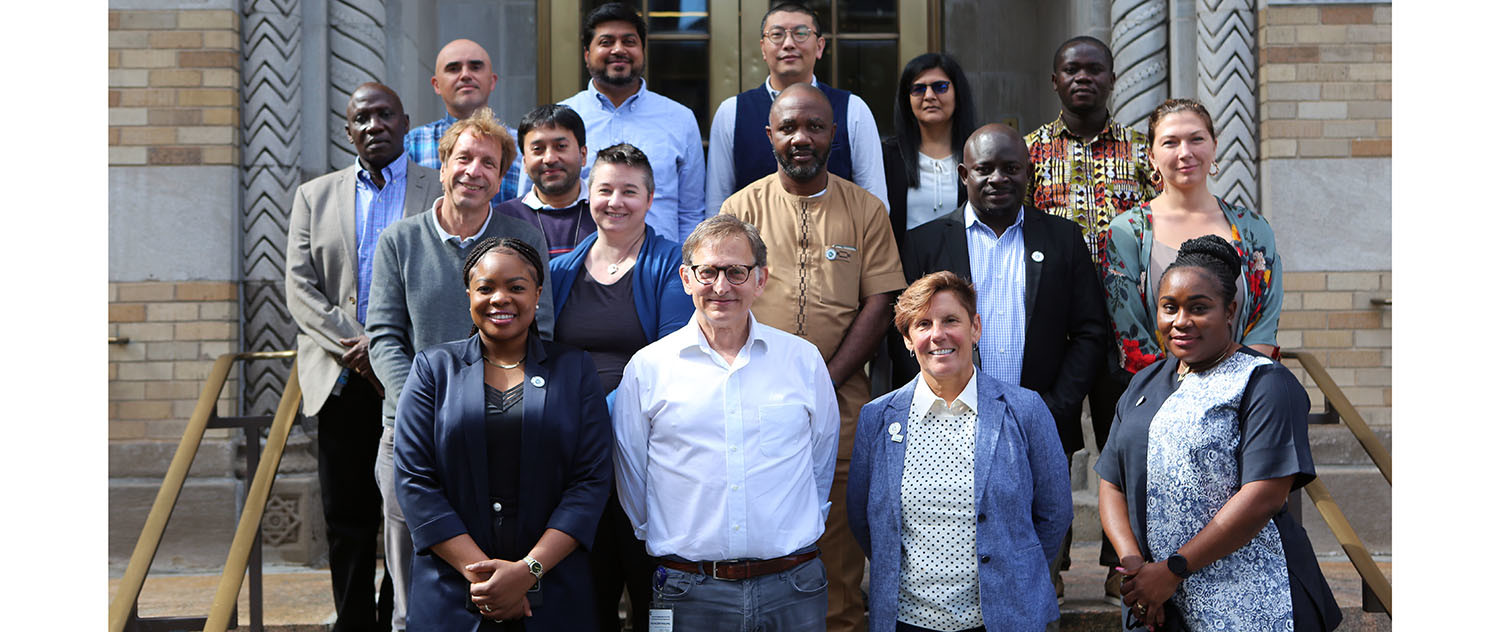Monrovia, Liberia– According to reports, Columbia University, Mailman School of Public Health, and the National Public Health Institute of Liberia (NPHIL) have joined partnership to strengthen pandemic security in Liberia. In May, Liberia saw a troubling spike in cases of COVID-19, but lacking the sophisticated equipment and technical ability to test samples, scientists at the National Public Health Institute of Liberia (NPHIL) were unsure whether or not the crisis could be attributed to an emerging strain of the virus. To get the answer quickly, they reached out to colleagues at the U.S. National Institutes of Health who then turned to a world leader in COVID diagnostics: the Center for Infection and Immunity (CII) at Columbia Mailman School.
The result was not just a rapid answer to the viral strain question, but an ongoing partnership that continues to build infectious disease surveillance capacity in the West African nation, as part of a larger CII-led Global Alliance for Pandemic Prevention (GAPP). This week, a contingent from NPHIL and NIH met with Columbia Mailman leaders and scientists to discuss next steps.
Going back to the early summer, as COVID cases in Liberia swelled, NPHIL Deputy Director for Research Bode Ireti Shobayo traveled to New York to work alongside Nischay Mishra, assistant professor of epidemiology, and other CII scientists to analyze nasopharyngeal swab samples collected in Liberia. Previously, it had taken as long as eight weeks to analyze samples through labs in Nigeria and Ghana; through CII it took days. Uniquely, the visit also gave Shobayo hands-on training in DNA and RNA sequencing and bioinformatics which will be useful as NPHIL builds technical capacity.
Their analysis at CII confirmed suspicions: the Delta variant of SARS-CoV-2 was the dominant strain during the surge in Liberia. It also provided evidence that the highly transmissible variant was imported at multiple sites over a period of only a few weeks. In early August, the findings were announced in a national address by the country’s Minister of Health, Wilhemina S. Jallah—a message that helped tamp down the spread of the virus. A publication describing their findings is in press at the Journal of Emerging Infectious Diseases.
“That information encouraged a lot of people to get vaccinated,” said Jane MaCauley, director-general of NPHIL, who led the Liberian contingent visiting the School this week. “After the ED [Ebola] outbreak, when people don’t see severe symptoms, they see it as a common cold. But understanding it is the Delta variant boosted everyone’s willingness to get vaccinated.”
During their visit to CII, NPHIL scientific staff met with CII scientists to review a curriculum for sequencing, bioinformatics, and serology. The group, which days prior also met with officials at the U.S. Centers for Disease Control and Prevention and USAID, also discussed next steps, including plans to bring sequencing technology online in the NPHIL lab, train additional scientists at CII, and publish new research. Looking ahead, MaCauley would like Shobayo and other members of her scientific staff to develop training courses in Liberia to further build capacity and better position the country to respond to infectious outbreaks like COVID, Ebola, and Lassa Fever, as well as future, as-yet-undiscovered pathogenic threats.
“There is a saying in Liberia, ‘a friend in need is a friend in deed.’ Columbia came to us right in time when we needed to know what virus was circulating. We look forward to continuing to build capacity and conducting research together,” said MaCauley.
Meanwhile, CII is looking to replicate the Liberian partnership in other countries, as part of efforts to build GAPP with the broad goal of developing scientific capacity and technology to support the early detection of infectious disease threats worldwide, including those with pandemic potential. GAPP is funded, in part, through a grant by the Skoll Foundation.
Since 2001, CII has trained researchers from more than 30 countries on how to identify and respond to infectious threats—including those that affect humans, as well as the livestock and fish that feed them—wherever they occur. As COVID has made painfully clear, an infectious threat that emerges in one country can quickly spread around the world.
“It is a privilege to work with our colleagues in Liberia, as we build partnerships to strengthen infectious disease surveillance in the region and beyond,” said CII Director Ian Lipkin, the John Snow Professor of Epidemiology at Columbia University Mailman School of Public Health. “When it comes to outbreaks, there is no such thing as ‘here’ and ‘there.’ Everything is everywhere. International air travel means a pathogen can spread from one part of the world to another in 24 hours or less. Global scientific partnerships and capacity-building are critical to preventing the next pandemic well before it crosses the jet bridge.”
Partnership with Liberia Builds Scientific Capacity and Strengthens Global Pandemic Security






